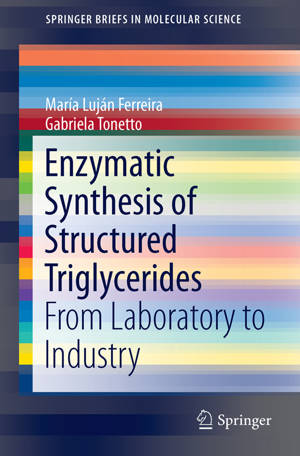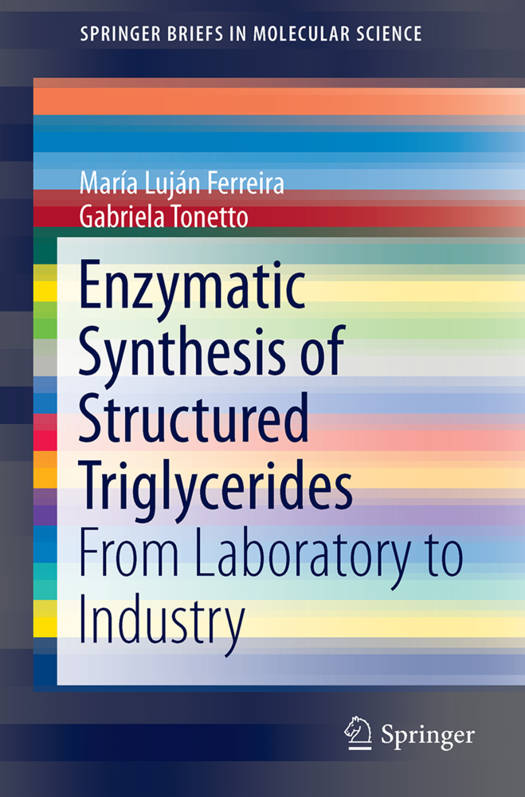
- Retrait gratuit dans votre magasin Club
- 7.000.000 titres dans notre catalogue
- Payer en toute sécurité
- Toujours un magasin près de chez vous
- Retrait gratuit dans votre magasin Club
- 7.000.0000 titres dans notre catalogue
- Payer en toute sécurité
- Toujours un magasin près de chez vous
Enzymatic Synthesis of Structured Triglycerides
From Laboratory to Industry
María Luján Ferreira, Gabriela Marta TonettoDescription
This brief presents the state of the art on enzymatic synthesis of structured triglycerides and diglycerides, focusing on glycerol as the substrate and covering interesterification of vegetable oils in one and two steps. It critically reviews the available literature on enzymatic and chemo-enzymatic synthesis of di- and triglycerides in one or more steps. The effects of the structure, length and unsaturation of the fatty acids are carefully considered, as well as the inhibitory potential of highly unsaturated complex fatty acid structures.
The brief also addresses acyl migration and the use of adsorbents, taking into account the most recent literature and presenting the problem in an industrial context. It discusses experimental and analytical problems concerning, e.g. the lab scale and the scaling up to bench and pilot plants. Several examples are presented, and their successes and failures are assessed. Biocatalysts based on lipases are analyzed with regard to problems of immobilization, stability on storage time and activity after multiple uses. The need for specific Sn-2 lipases is presented and strategies for optimizing Sn-2 esterification are discussed. Lastly, practical aspects are examined, e.g. lipase "leaching" with loss of activity, taking into account the latest findings on continuous and batch reactor configurations and presenting the advantages and disadvantages of each.
Spécifications
Parties prenantes
- Auteur(s) :
- Editeur:
Contenu
- Nombre de pages :
- 88
- Langue:
- Anglais
- Collection :
Caractéristiques
- EAN:
- 9783319515731
- Date de parution :
- 08-03-17
- Format:
- Livre broché
- Format numérique:
- Trade paperback (VS)
- Dimensions :
- 156 mm x 234 mm
- Poids :
- 154 g

Les avis
Nous publions uniquement les avis qui respectent les conditions requises. Consultez nos conditions pour les avis.






